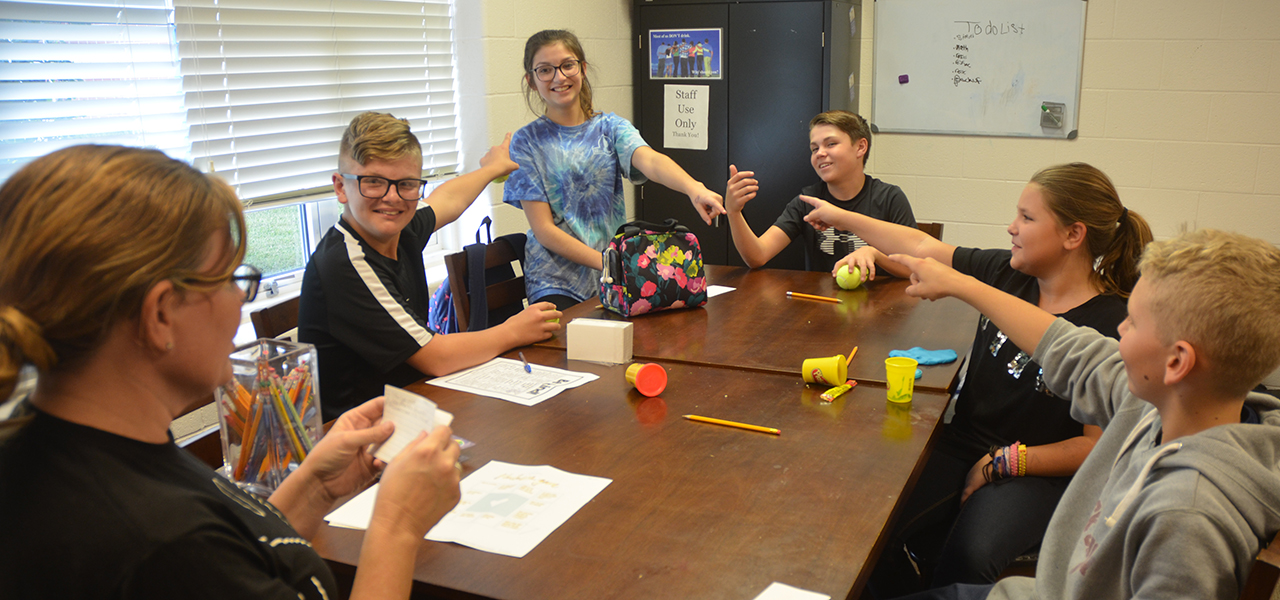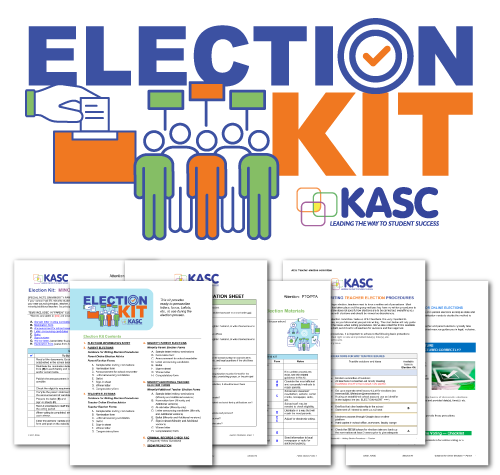At some point most every school day, Marissa Atha, a 7th grader at Spencer County Middle School, said she can’t wait for the final bell to chime.
She finds math and science tough to absorb, but once school is out, she feels confident that she can get things straight and also have fun with friends — all before dinner.
“How I do in class is improved,” Marissa said, crediting the school’s thriving afterschool program, Grizzlies Beyond the Bell, which everyone calls G.B.B.
Four days a week, Marissa and her peers are able to work with teachers for an hour each afternoon to revisit fuzzy concepts, finish homework, retake tests, or wrestle with new concepts. The program also offers a snack, an hour in clubs created based on students’ interests, and, if needed, a ride back to their families. For Marissa and others, the program motivates through personal connections with the afterschool program staff, teachers who work with the program, high schoolers who assist, and community volunteers.
“When I go to G.B.B., Ms. Karen (program director Karen Leff) asks about my current grades,” the 12-year-old said. “I hadn’t been doing well in math class along with science, and she just encourages me — ‘You need to retake that test’, or ‘You need to do your work,’ or ‘Come on Marissa, you need to start doing more stuff to get more productive.”
“It works,” Marissa added. “They are so supportive and nice.”
The G.B.B. program is a popular support. Last year, more than 550 of 650 students at Spencer County Middle stayed for the program at some point during the year. Day-to-day attendance averages about 150.

STUDENTS IN A SERVICE CLUB called The Kindness Project guess one another’s answers on a quiz about personality traits.
Principal Matt Mercer said the growth of the afterschool program tracks closely with significant academic gains by the school.
“This program is at the center of everything we do,” he said.
Since the afterschool program started six years ago, academic performance rose from the bottom third of middle schools to well above the state average. This fall, the school was one of 72 middle schools earning four stars or higher under the state’s new rating system, which measured 319 middle schools. Spencer County Middle was classified a “distinguished” school in the previous accountability system.
“I don’t think that’s a coincidence,” Mercer said. “Our students started to buy into the idea of liking and enjoying and feeling safe at SCMS” as the afterschool program grew.
Spencer County educators saw an opportunity to expand supports for students and families under the federal 21st Century Community Learning Centers program created to increase academic enrichment outside of school hours.
Funds flow from the U.S. Department of Education to the Kentucky education department, which awards grants to school districts, community organizations and other eligible public and private groups.
The key to all of it is getting to know the kids.
— Program Director Karen Leff
Spencer County started with a $150,000 grant six years ago. Now, after an expansion grant and continuation funding, the budget is $200,000 per year with an eye toward making the budget sustainable for the district and school when grant funds end.
The current combination of local and federal support funds 2 full-time staff members to organize and lead the program. It also pays 11 teachers to tutor students and lead club activities, 3 classified staff members who assist, and a group of 8 mentors from Spencer County High.
In addition, the grant covers transportation to four pick-up locations where students meet family members after the program dismisses at 5:30 each afternoon. A four-week summer program is also funded through the federal grant.
For Karen Leff, who has directed the program since it started, a goal is to make the bureaucratic structure of the program disappear behind an environment of close connection and engaging activities that keep things lively.
“The key to all of it is getting to know the kids. We both come in early every day. We eat lunch with the kids, we interact, we go to their ballgames. We have that relationship with them,” she said of herself and the program’s data specialist, who works in the office with Leff. “I want it to be fun.”
The sense of personal attention comes through. Seth Arterburn, a sixth grader who didn’t know about the program when he started school here this year after moving from Louisville, said the time built in for homework has been “quite helpful” with math, history and science work.
Having a teacher on hand means questions get addressed quickly. A recent example involved understanding how to divide decimals. Seth said the teacher walked a group of students through the necessary steps. “He’ll always come around and help us and check it,” Seth said.
The growth of the afterschool program tracks closely with significant academic gains by the school, said Principal Matt Mercer.
Michelle Gross, a seventh-grade math teacher who leads a homework help session each day as well as the weekly Lego Club, said that the program means she can be a more effective teacher.


